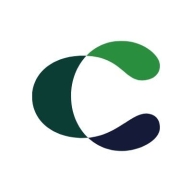

SonarQube Server and Contrast Security Assess are direct competitors in the domain of code quality and security. SonarQube Server is preferred for its strong community support and cost-effectiveness, whereas Contrast Security Assess's comprehensive security features make its higher price worthwhile.
Features: SonarQube Server provides robust code analysis across over 20 programming languages, offers continuous code inspection with Jenkins integration, and emphasizes quality gates and metrics crucial for code quality. Contrast Security Assess excels in real-time vulnerability detection, comprehensive security scanning, and provides automated security monitoring, prioritizing security over code quality analysis.
Room for Improvement: SonarQube Server could enhance its quick security vulnerability detection and reduce manual false-positive adjustments. Its deployment updates also demand smoother integration with legacy systems. Contrast Security Assess might improve its flexibility in handling varying code quality metrics and expand community engagement for better support channels. Its feature set could be more intuitive for non-security experts.
Ease of Deployment and Customer Service: SonarQube Server allows straightforward on-premises deployment with a supportive community for troubleshooting, though it suits simpler setups better. Contrast Security Assess presents both cloud and on-premises options with dedicated technical support, making it ideal for complex, security-oriented deployments.
Pricing and ROI: SonarQube Server's cost-effective licensing offers high ROI for organizations prioritizing code quality without heavy security demands. Contrast Security Assess requires significant investment but delivers high ROI through its advanced security measures, essential for security-sensitive industries.


Contrast Security is the world’s leading provider of security technology that enables software applications to protect themselves against cyberattacks, heralding the new era of self-protecting software. Contrast's patented deep security instrumentation is the breakthrough technology that enables highly accurate assessment and always-on protection of an entire application portfolio, without disruptive scanning or expensive security experts. Only Contrast has sensors that work actively inside applications to uncover vulnerabilities, prevent data breaches, and secure the entire enterprise from development, to operations, to production.
SonarQube Server enhances code quality and security via static code analysis. It detects vulnerabilities, improves standards, and reduces technical debt, integrating into CI/CD pipelines.
SonarQube Server is a comprehensive tool for enhancing code quality and security. It offers static code analysis to identify vulnerabilities, improve coding standards, and reduce technical debt. By integrating into CI/CD pipelines, it provides automated checks for adherence to best practices. Organizations use it for code inspection, security testing, and compliance, ensuring development environments with better maintainability and fewer issues.
What are the key features of SonarQube Server?Many industries implement SonarQube Server to uphold coding standards, maintain security protocols, and streamline their software development lifecycle. In sectors like finance and healthcare, adhering to regulations and ensuring reliable software is critical, making SonarQube Server invaluable. It is often integrated into CI/CD pipelines, ensuring that code changes meet set standards before deployment. This approach enhances productivity and maintains compliance with industry-specific requirements.
We monitor all Application Security Tools reviews to prevent fraudulent reviews and keep review quality high. We do not post reviews by company employees or direct competitors. We validate each review for authenticity via cross-reference with LinkedIn, and personal follow-up with the reviewer when necessary.